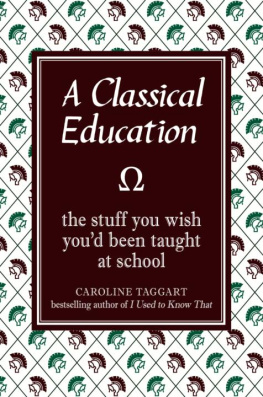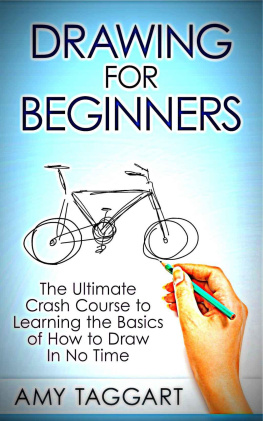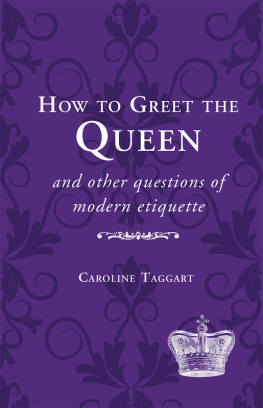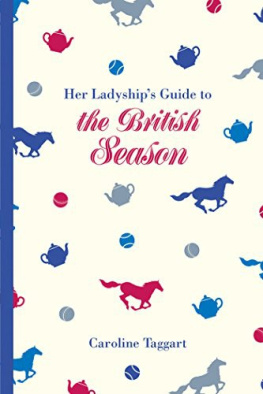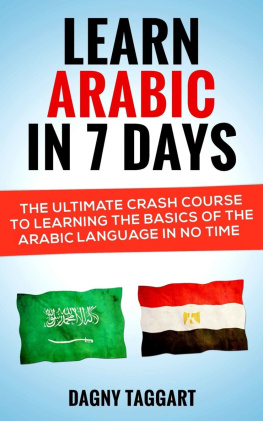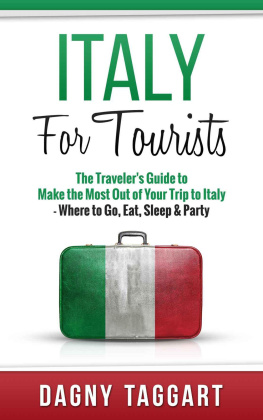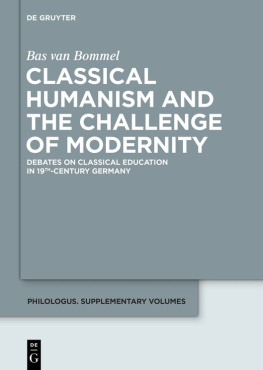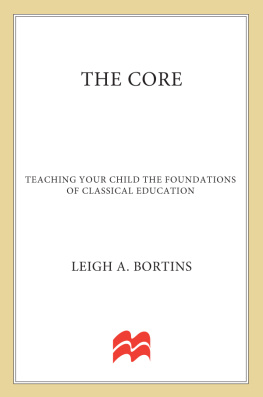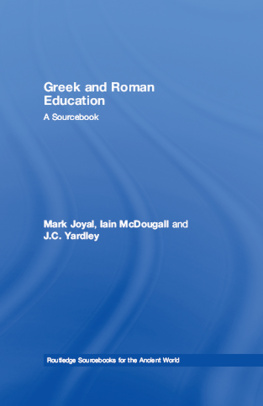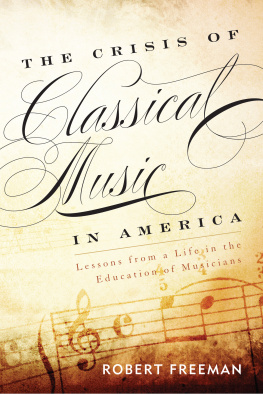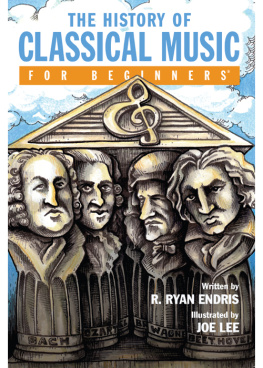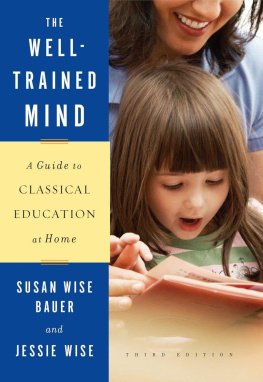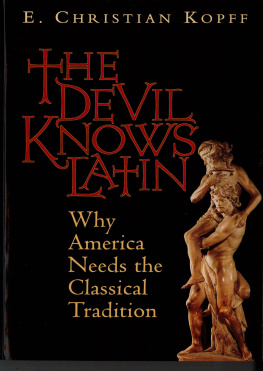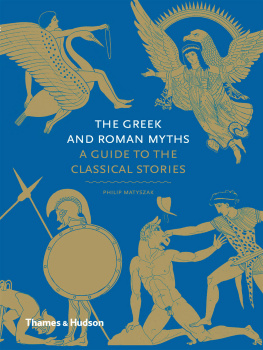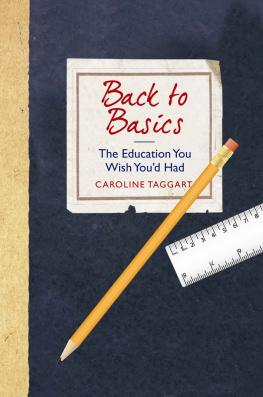Taggart - A Classical Education: The Stuff You Wish Youd Been Taught at School
Here you can read online Taggart - A Classical Education: The Stuff You Wish Youd Been Taught at School full text of the book (entire story) in english for free. Download pdf and epub, get meaning, cover and reviews about this ebook. year: 2009, publisher: Michael OMara, genre: Religion. Description of the work, (preface) as well as reviews are available. Best literature library LitArk.com created for fans of good reading and offers a wide selection of genres:
Romance novel
Science fiction
Adventure
Detective
Science
History
Home and family
Prose
Art
Politics
Computer
Non-fiction
Religion
Business
Children
Humor
Choose a favorite category and find really read worthwhile books. Enjoy immersion in the world of imagination, feel the emotions of the characters or learn something new for yourself, make an fascinating discovery.
A Classical Education: The Stuff You Wish Youd Been Taught at School: summary, description and annotation
We offer to read an annotation, description, summary or preface (depends on what the author of the book "A Classical Education: The Stuff You Wish Youd Been Taught at School" wrote himself). If you haven't found the necessary information about the book — write in the comments, we will try to find it.
How many times have you wished that youd been taught Latin at school? Or that your history stretched all the way back to Greek and Roman myths and legends? Or perhaps you wish you knew all about the great inventions and medical developments that have made our world what it is today? A Classical Education provides all of these classical facts that modern schooling leaves out and many more. Perfect for parents who wish to teach their children and for those who would like to learn or relearn the facts themselves, A Classical Education is informative and educational, but in a completely accessible way, including:
Latin and Greek
Logic and philosophy
Natural sciences
Art and architecture
Poetry and drama
History and Classical literature
Also including suggestions for further reading and entertaining tit-bits of information on the classics, A Classical Education is a must for anyone feeling let down by modern schooling.
ReviewSee if you can tell your Tantalus from your Tacitus! The Daily Telegraph This book aims to fill you in on the stuff you wish youd been taught at school The Times A cutely old-fashioned volume covered in Roman centurions helmets Yorkshire Post If you wished youd paid more attention at school, then this is the book for you. Fascinating! The Good Book Guide
About the AuthorCaroline Taggart has worked in publishing for nearly 30 years, the last 18 of them as a freelance editor of non-fiction. She has edited innumerable natural history titles, notably Jonathan Scotts Big Cat Diary books and the tie-in to the BBC series Walking with Dinosaurs, as well as books on gardening, cookery, health, witchcraft, pop music, the Blitz, the D-Day landings, the House of Commons and the English language. She has also written a handbook for mature students and an encyclopaedia of dogs. The first book Caroline wrote was I Used To Know That, a Sunday Times bestseller published in 2008. This was followed by My Grammar and I (also a Sunday Times bestseller), Answers to Rhetorical Questions, A Classical Education, An Apple A Day and Pushing the Envelope. Her books have appeared in the Sunday Times, Daily Express, Daily Telegraph, the Times, the Sun and many other publications, and her frequent television and radio appearances include BBC1 Breakfast, BBC Radio 4 and BBC Radio 5 Live.
Taggart: author's other books
Who wrote A Classical Education: The Stuff You Wish Youd Been Taught at School? Find out the surname, the name of the author of the book and a list of all author's works by series.

